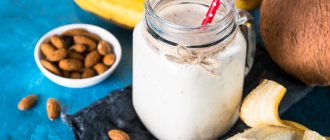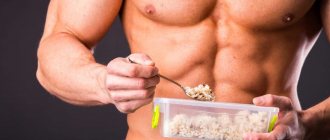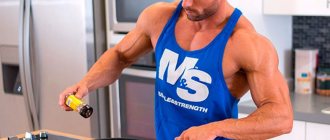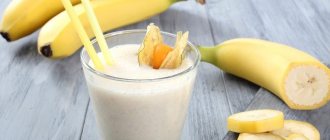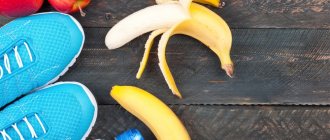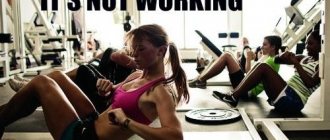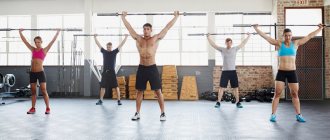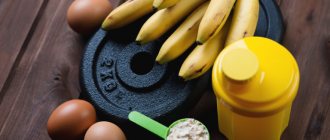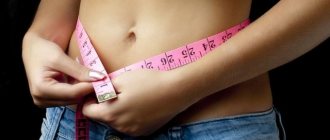Surely you have spotted people in the gym who, after training, drink protein shakes , eat bananas, and some even carry with them a container of buckwheat, for example, and boiled chicken. From the outside it looks quite wild, but people who strictly monitor the quality of their body, concerned about muscle growth and the fat burning process, do this because they know about the existence of the so-called protein-carbohydrate window.
Before you figure out what this window is, you need to define two concepts - anabolism and catabolism.
What is a protein window?
The body's capabilities are limited. Including in terms of nutrient absorption. In one “approach” we are able to absorb no more than 30 g of protein. Whatever comes in above normal comes out naturally. The protein window is a period during which the body absorbs several percent more protein.
The essence of strength training comes down to the destruction of muscle fibers. The process of catabolism starts - the breakdown of protein chains. The body actively produces stress hormones to help the body cope with the sharply increased load. Both muscle microtraumas and raging hormones are good. But only if the process is kept under control, and after classes the situation is reversed.
The body has a built-in mechanism, the purpose of which is precisely to restore resources and increase various indicators associated with physical activity. Using this mechanism correctly, we build muscle, become stronger, more resilient, or lose weight. But all this only works if you eat properly.
Given the body's limited ability to absorb proteins, it is wise to take advantage of the moment. Protein is required in any case, but it is rational to consume it precisely when there is both a need and a resource for its processing into muscle tissue.
What happens if you fast after a workout?
- Firstly, microdamaged muscles will not be filled with nutrients, which means they will not grow. Therefore, the window is often called anabolic.
- Secondly, stress hormones (cortisol and adrenaline) during fasting after exercise destroy muscles.
- Third, insulin, which is produced by the body when eating carbohydrates, does not increase and does not fight stress hormones.
- Fourthly, with prolonged fasting, metabolism slows down, even for those losing weight who do not gain muscle - this process is destructive. It is known that with a slow metabolism, the body is worse at parting with its own fats.
Myth or truth?
There is a lot of controversy surrounding the protein window. Fitness magazines often talk about its benefits. Many athletes claim that they have seen the effectiveness of the effect in practice. But what does science say about this?
The industry has not yet found an Einstein who, with scientific calculations, would put all opponents of the window to the ground. There are no serious studies proving the need to fall into a narrow time loophole. In 2013, Brad Jon Schoenfeld and Alan Albert Aragon set out to find out how effective the protein window strategy was. Here are their conclusions:
- athletes who fuel themselves with protein 1-2 hours before training do not experience an urgent need in the post-training window;
- amateurs who eat haphazardly need prompt replenishment of nutrients after physical exercise - that is, the protein-carbohydrate window really exists;
- It is not yet possible to say which period is more important - before or after the training.
The conclusions echo those that practitioners have long seen. It is possible to saturate the body during the day - the role of the window is reduced. There is no possibility - his role is increasing. But, we repeat, there is no serious scientific basis that would put an end to this issue. That, however, does not prevent us from recommending that amateurs not disdain practical and (partially) theoretical information baggage. With a caveat - it is advisable to adjust the numbers and specifics in general to the characteristics of your body. Everything is individual.
You can find the results of the study here https://cross.expert/zdorovoe-pitanie/belki-zhiry-i-uglevody/uglevodnoe-okno.html. The study's authors relied on dozens of sources.
Does it exist?
Despite claims that immediate post-exercise eating is essential for maximizing muscle hypertrophy, scientific support remains fragile. The question arises, how does eating before training affect nutrition after training ?
During the research, it was found that even relatively small doses of amino acids (6 g) consumed immediately before training can significantly increase the concentration of amino acids in the blood and muscles by about 130%, which lasts for about 2 hours . And taking 20 grams of whey protein before training increases the concentration of amino acids up to 440%, which remains for about 3 hours after training .
In addition, there is an opinion that simple proteins taken immediately after training, as building material, go straight to the muscles. It has been experimentally established that strength training intensifies the processes of protein metabolism for 1-2 days, i.e. protein synthesis accelerates and it is important to nourish the body with even doses of protein over a day or two. So the importance of protein-carbohydrate mixtures is greatly exaggerated.
Fructose: is it possible to eat fruit and lose weight?
There are four phases in the recovery process: rapid recovery, delayed recovery, supercompensation (overrecovery) and delayed recovery. Moreover, the course of recovery processes is characterized by the multi-temporality of the course of recovery reactions, as well as the strict sequence of their qualitative and quantitative characteristics. The first and second phases characterize the dynamics of recovery processes until the energy and plastic characteristics of the body reach the pre-training level , the third phase results in an increase in the functional and morphological characteristics of the body, and the fourth phase marks a return to the pre-training level in the absence of repeated adequate load for a certain time.
Detailed article about muscle recovery after training and soreness: “Fast and high-quality muscle recovery after training”
Tax, why do we need to know this? And then: during and immediately after intense physical activity, there is, first of all, a decrease in the level of ATP and other high-energy phosphates in muscle tissue, and also the depletion of glycogen reserves in the muscles and liver is observed, and a certain oxygen debt of the body is formed. There is also destruction of the protein structures of muscle tissue , as well as the consumption of a number of hormones, enzymes and other biologically active substances.
Recovery processes begin with the elimination of oxygen debt and the restoration, first of all, of energy homeostasis (the constant composition of the internal environment) of the muscles, disturbed during strength training. During the first minutes and hours after training, the body strives to restore the level of high-energy phosphates and ATP in the cell due to the activation of oxidative processes. Also, during the first 12-48 hours after training, glycogen resynthesis occurs in the muscles and liver, which further increases the energy potential of the muscle cell and the body as a whole. And until the body restores the level of ATP in muscle tissue, the processes of protein synthesis, that is, anabolism, do not begin .
That is, the body's increased need for protein does not occur earlier than 24-48 hours after an intense workout, and active protein loading immediately after training will only benefit your protein supplement supplier .
And you need to replenish glycogen stores within 24 hours, and not immediately after training . Don't believe me? Read the article on glycogen . By the way, if you still believe in the myth that glycogen stores can be depleted in 20 minutes of running, then this article is definitely for you
